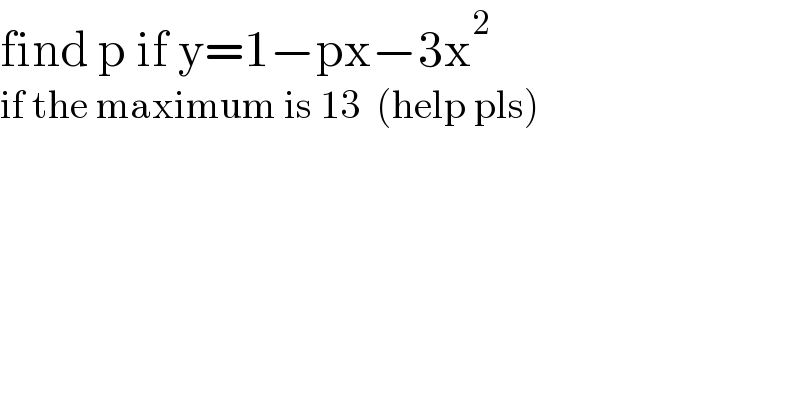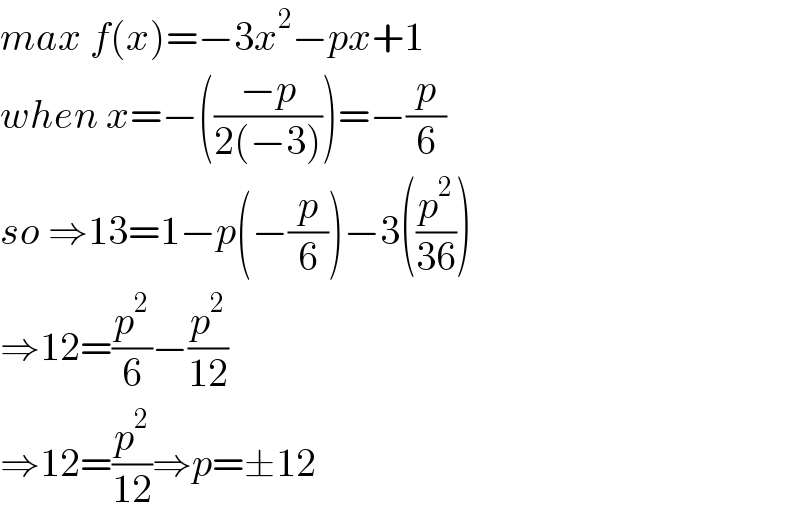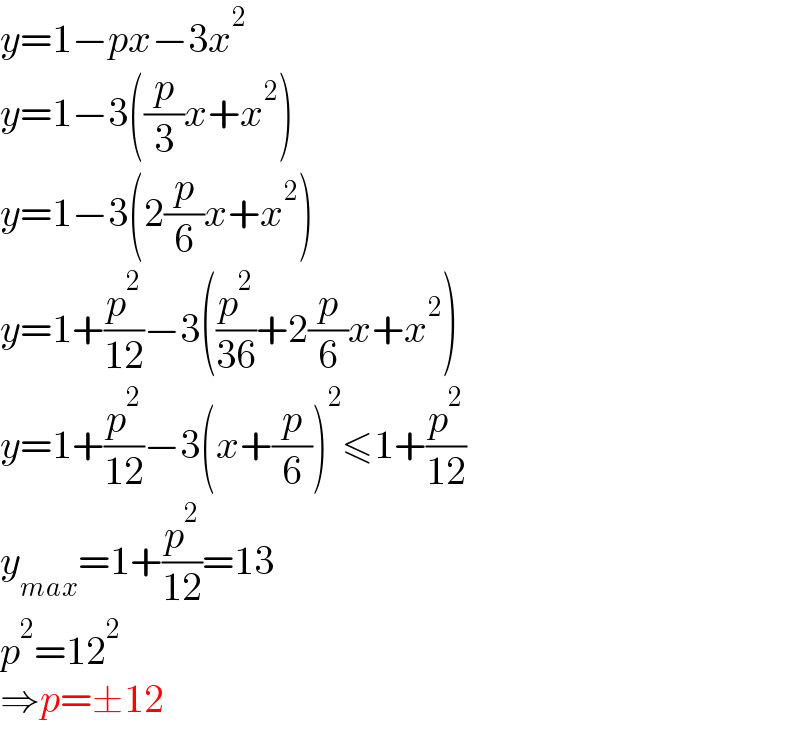
Question and Answers Forum
Question Number 156584 by Ghaniy last updated on 12/Oct/21

Commented by john_santu last updated on 14/Oct/21

Answered by mr W last updated on 13/Oct/21

Commented by otchereabdullai@gmail.com last updated on 13/Oct/21

Commented by Ghaniy last updated on 14/Oct/21

